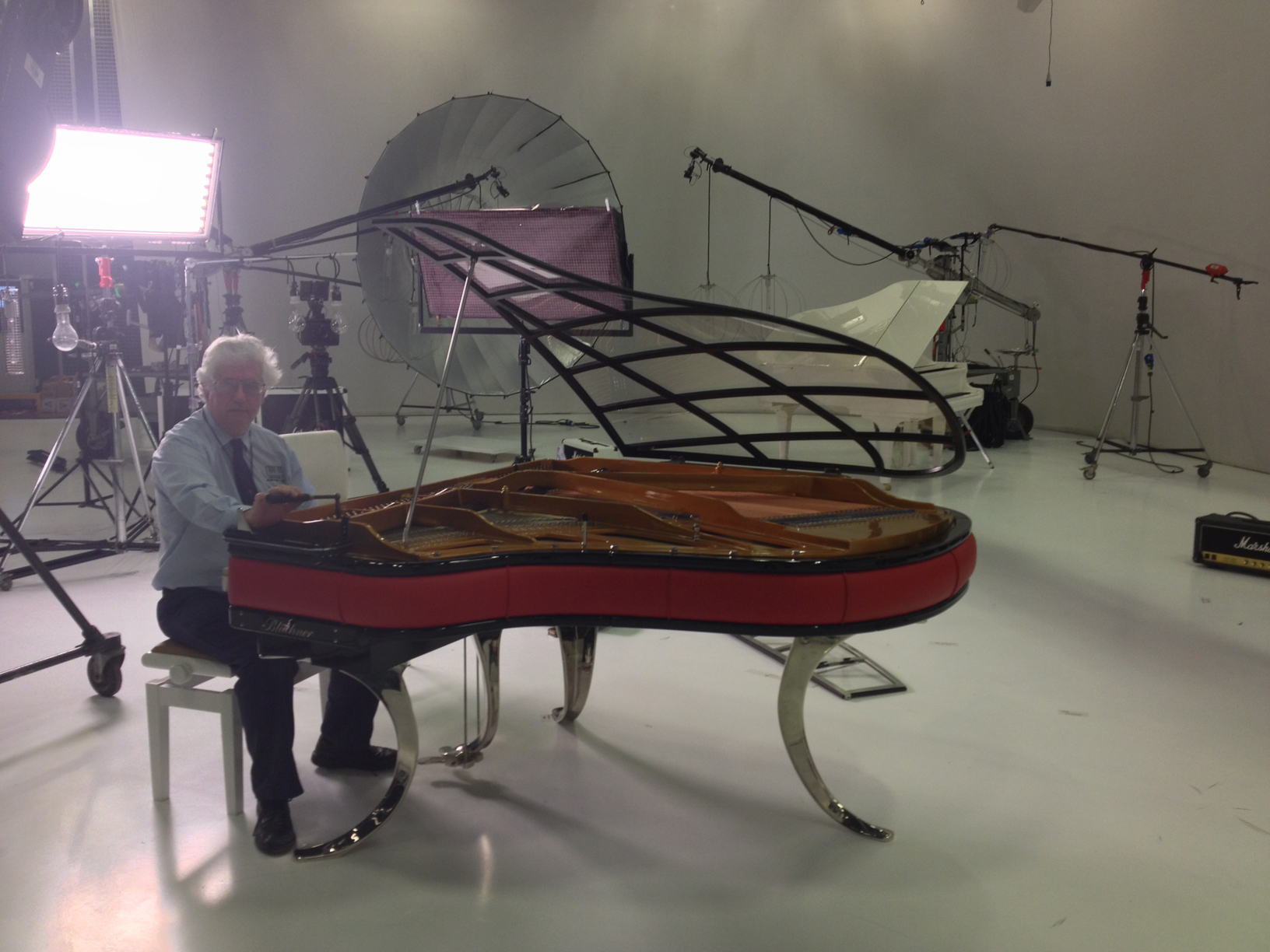Qualified Piano Tuner Technician
Tuning Pianos in Lancashire
I tune pianos for schools, homes, and concert venues. Most of my clients have their pianos tuned to concert pitch A440. I was trained the traditionally way to tune pianos, using aA440 tuning fork and my ears to enable me to get the best musical sound from your piano. A piano main component is different types of wood; all woods shrink and swell with changes in humidity and temperature throughout the UK seasons. This is why pianos go out of tune even if you don't play them.

Tuning at the BBC Manchester
After moving my piano how long should I wait before having it tuned?
It is the change in the environment, extra or less humidity and temperature, rather than the actual move itself, that makes pianos go out of tune. A substantial difference in humidity between its previous location and its new home will change the shape of the piano’s soundboard and bracings, in turn changing the tension on the strings. It can take up to 4 weeks for the piano to get used to the new environment.
Standard Tuning
A standard tuning appointment involves me tuning the piano that is at concert pitch (A440) also, spending some time improving the tone (piano voicing) and touch (piano regulation) of your piano. This can normally take 50 to 75 minutes depending on the age of the piano.
Pitch Raise
If the piano is a long way from A440 (concert pitch) and we have to do what we call a pitch raise this takes a lot longer and can take up to 3 hours the piano may need a second visit a few weeks later to stabilise it. This, of course, will incur extra costs which we will discuss at the time of tuning . Also, there is the risk of strings breaking.
Older Pianos
Some pianos, due to their age, the condition of the strings, cannot be tuned to A440. However, I always try to bring the piano up to pitch when possible. The pitch is very important when learning the piano. Particularly for young children, the wrong pitch can put them off if the note they are playing on their piano is a semitone flat compared to the one on their music teacher's piano. However, bringing the piano up to pitch takes more time and therefore costs more.
Small upright pianos
That do not have particularly good supporting back bracings at the back of the piano or none at all. These pianos will often not hold their pitch particularly well. This is a manufacturing limitation due to budget restriction to keep the cost of manufacture down This plays an important part, especially in low budget piano of the 70s and mini pianos.
Why do older piano go out tune quicker?
In older pianos, the primary cause of strings slackening is the tuning pins which are embedded in the wrest plank ( tuning pin block) become loose either due to general wear and tear over the years, or more commonly because the wrest plank has developed splits across or around the pin holes due to the wood drying out. this problem can be accelerated when a piano is in a damp place, then a dry place and back in a damp environment, then back in a modern dry house. The fibres around the tuning pin get crushed when in the damp place after it has been in a very dry home.
Another primary cause is the movement in the soundboard due to change of-of humidity in the room. the soundboard is made of spruce and is responsible for the sound of the piano. Spruce is used because of its elastic nature ; the more elastic the soundboard the more pleasant the tone. The steel strings bear down on this soundboard through 'bridges' (can be as much as 1.361 kg acros the soundboard) which in turn allows their vibrations to be amplified.
Atmospheric changes within the home. Due to the very nature of the whole construction of pianos mainly wood, they are very sensitive to atmospheric changes in temperature and humidity. During the warmer months, the atmosphere is quite humid and water laden, the wood absorbs this moisture and swells. The strings, therefore, tighten which causes the pitch to rise the piano is then out of tune. During the winter if heating is used, the moisture evaporates from the wood which therefore shrinks and the strings slacken and the pitch drops, again resulting in the piano being out of tune. If these variations become too severe it can ultimately lead to the soundboard cracking or tuning pin becoming lose which becomes a very expensive repair option. Controlling temperature and humidity, therefore, plays an important part in preserving your piano life.
Underfloor Heating
Underfloor heating produces rising hot air that will cause damage to your piano. we recomend you protect your piano with an underfloor heating mat or Piano Life Saver.
I have been vetted by the Disclosure and Barring Service (DBS) and therefore approved to work in situations with vulnerable adults or children. (Previously called CRB checks)
